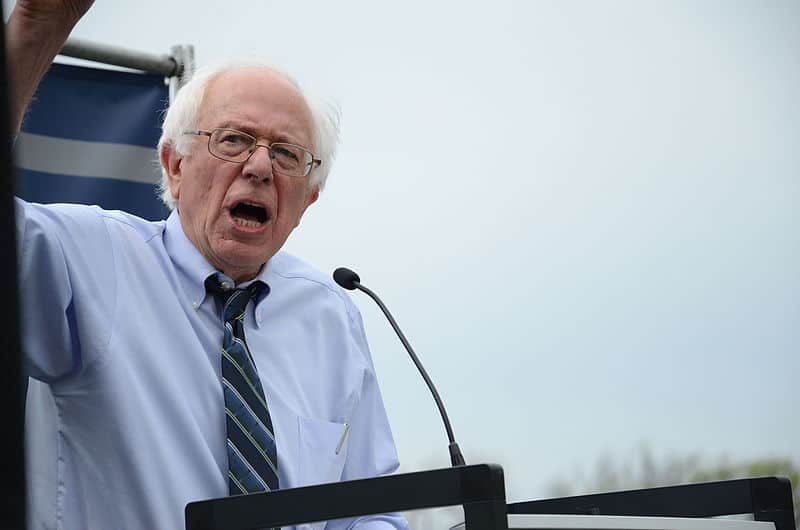Lolita De Palma is a student at Harvard Law School.
The New York Times interviewed members of the Culinary Union Local 226 in Nevada with differing views on Senator Bernie Sanders’s “Medicare for All” plan. As Jacob highlighted yesterday, the Culinary Union has criticized Sanders’s Medicare for All proposal on the basis that it would take away the health care plan that union members worked hard to secure through a six-year strike in the 1990s. In many ways, the experience of this demanding strike has influenced how Culinary Union members view Sanders’s proposals today. While some view Medicare for All as an opportunity to fight for everyone to have the benefits their membership now enjoys, others worry that they will be forced to battle again for their rights if they forfeit what they have already won. The New Yorker spoke with Carmela Perez, a union member who is against Medicare for All. Perez’s main concern is whether the plan would survive Sanders’s presidency. “What’s going to happen if other Presidents don’t think the same as Sanders? So what’s more valuable: a bird in the hand or a hundred in the air?”
Despite these concerns about Sanders’s health care policy, the presidential candidate went on to win the Nevada caucuses on Saturday. Many Culinary workers caucused for Sanders. Aramas Walker, a union member, said, “Bernie’s plan is better for not only everybody in the nation but it also covers things, some of the things that our health plan itself doesn’t cover.”
Economist Miles Corak has compiled data from countries around the world to plot the “Great Gatsby Curve,” a scatter plot showing the relationship between income inequality and intergenerational income mobility. The United States falls in the middle of the Great Gatsby Curve—about half of what a child is expected to earn is related to their parents’ incomes. Denmark, Norway, and Finland have much higher social mobility. On average, it takes only about two to three generations for a low-income family in one of these countries to reach the country’s average income.
In California, UC Santa Cruz graduate student workers are striking for a living wage. Students are currently spending 50-70% of their wages on rent due to rent increases in Santa Cruz. The strike has been ongoing since December with 233 graduate student instructors and teaching assistants refusing to submit nearly 12,000 grades from the fall quarter. Executive Vice-Chancellor of UC Santa Cruz Lori Kletzer set a deadline of 11:59 pm on Friday, February 21st for grade submission. The university has threatened to dismiss student workers who do not meet this deadline.






Daily News & Commentary
Start your day with our roundup of the latest labor developments. See all
February 17
San Francisco teachers’ strike ends; EEOC releases new guidance on telework; NFL must litigate discrimination and retaliation claims.
February 16
BLS releases jobs data; ILO hosts conference on child labor.
February 15
The Office of Personnel Management directs federal agencies to terminate their collective bargaining agreements, and Indian farmworkers engage in a one-day strike to protest a trade deal with the United States.
February 13
Sex workers in Nevada fight to become the nation’s first to unionize; industry groups push NLRB to establish a more business-friendly test for independent contractor status; and UFCW launches an anti-AI price setting in grocery store campaign.
February 12
Teamsters sue UPS over buyout program; flight attendants and pilots call for leadership change at American Airlines; and Argentina considers major labor reforms despite forceful opposition.
February 11
Hollywood begins negotiations for a new labor agreement with writers and actors; the EEOC launches an investigation into Nike’s DEI programs and potential discrimination against white workers; and Mayor Mamdani circulates a memo regarding the city’s Economic Development Corporation.